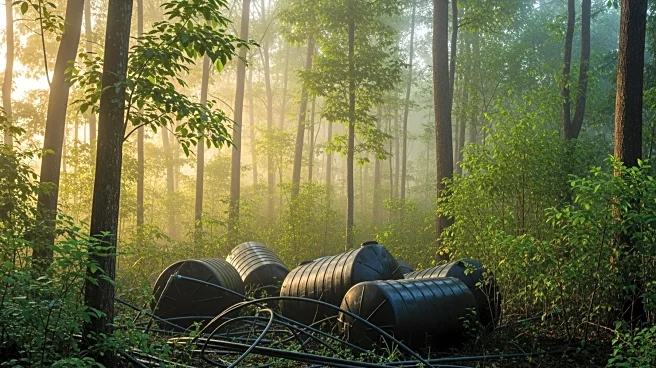What's Happening?
The Department of the Interior, under the Trump administration, has issued new guidance limiting the usage of the Land and Water Conservation Fund (LWCF). This fund, traditionally used to acquire land and support conservation projects, is now subject to restrictions that require state governors and county commissioners to approve expenditures. The guidance, announced by Interior Secretary Doug Burgum, could prevent the Bureau of Land Management from acquiring new land and may stymie projects outside of areas currently managed by the agency. The LWCF, funded by offshore oil and gas royalties, has historically supported numerous conservation projects across the U.S. The new order also allows states to use LWCF money to purchase federal surplus property, potentially shifting the responsibility to states to buy back land already in public ownership.
Why It's Important?
The restrictions on the LWCF could significantly impact conservation efforts across the United States. By limiting how funds can be spent, the Trump administration's policy may hinder the acquisition of new lands for conservation and recreation purposes. This could affect environmental and recreation advocates who rely on the fund to protect natural areas and support public parks. The requirement for state and local approval adds a layer of bureaucracy that may slow down or prevent projects, potentially suffocating initiatives aimed at expanding public land access. The changes could also shift financial burdens to states, affecting their ability to manage and develop public lands effectively.
What's Next?
The Interior Department has announced a $437 million allocation from the LWCF to all 50 states, which may provide some relief to affected projects. However, the broader implications of the new restrictions remain uncertain. Stakeholders, including environmental groups and state governments, may push back against the limitations, advocating for more flexible use of the fund. The ongoing debate over the LWCF's role in conservation and recreation is likely to continue, with potential legal challenges or legislative efforts to restore its traditional usage.








